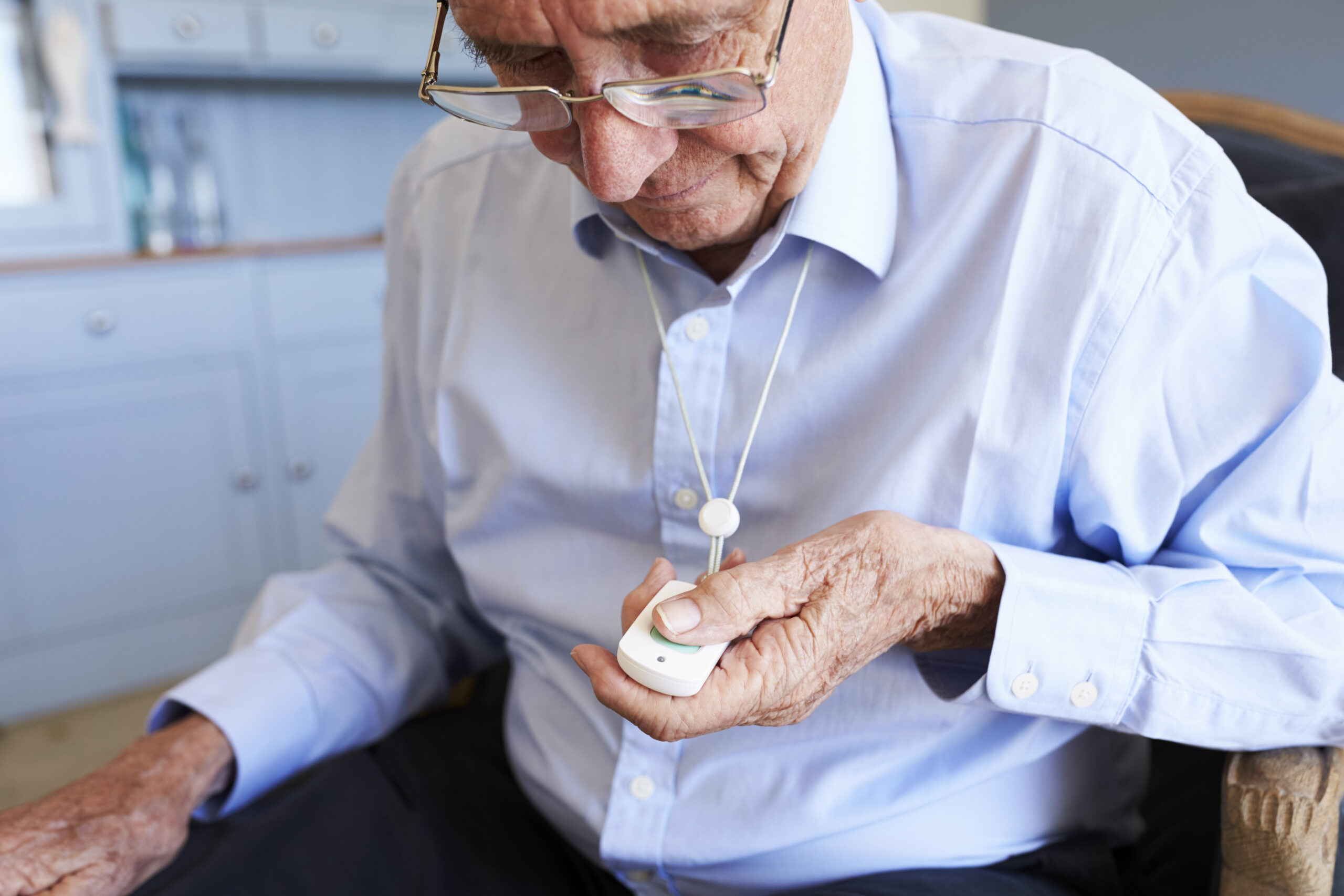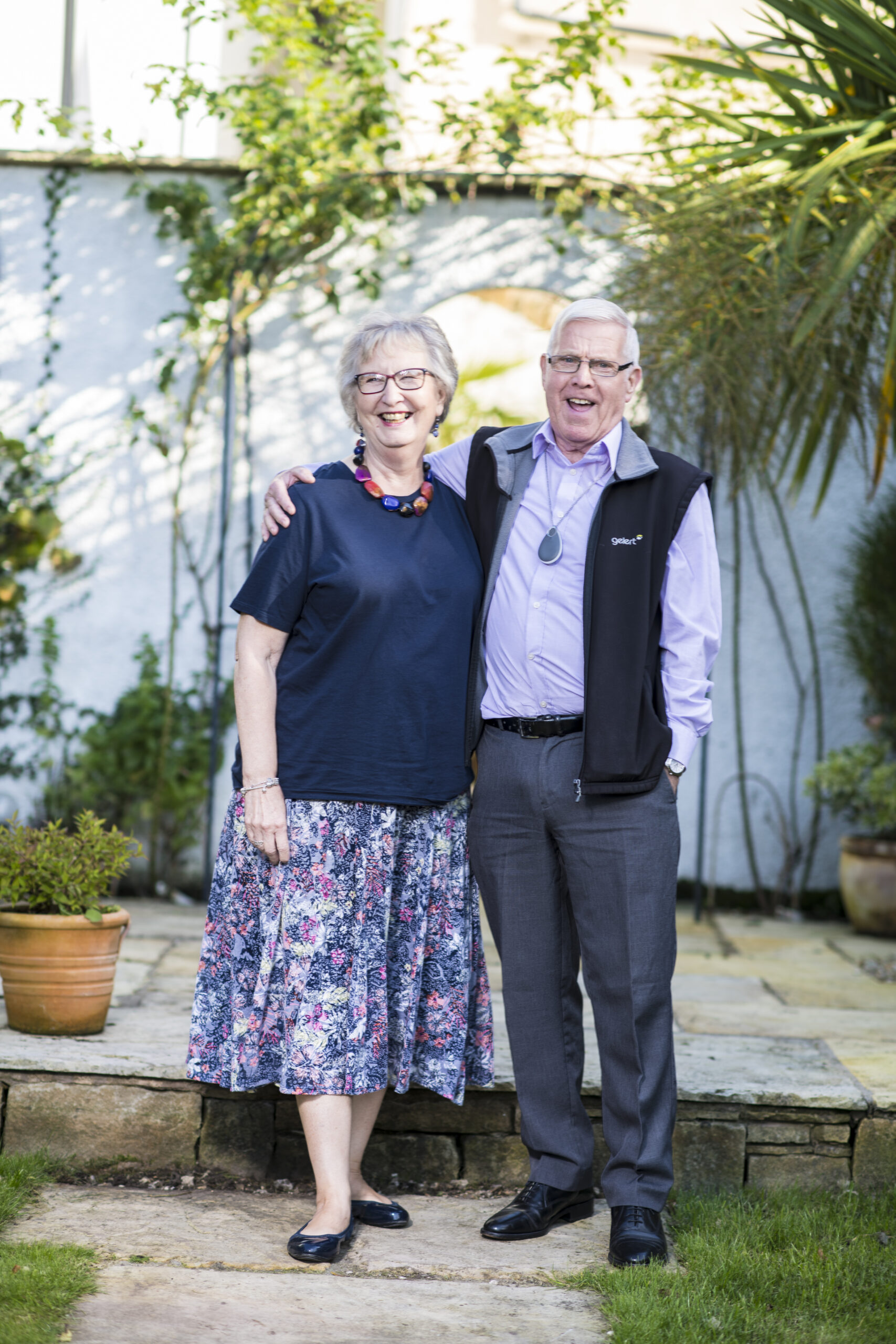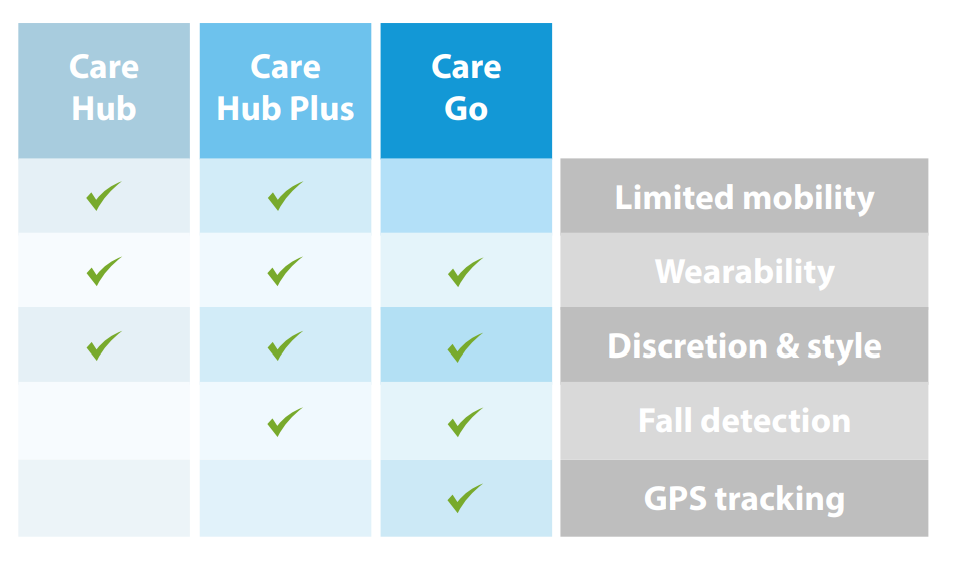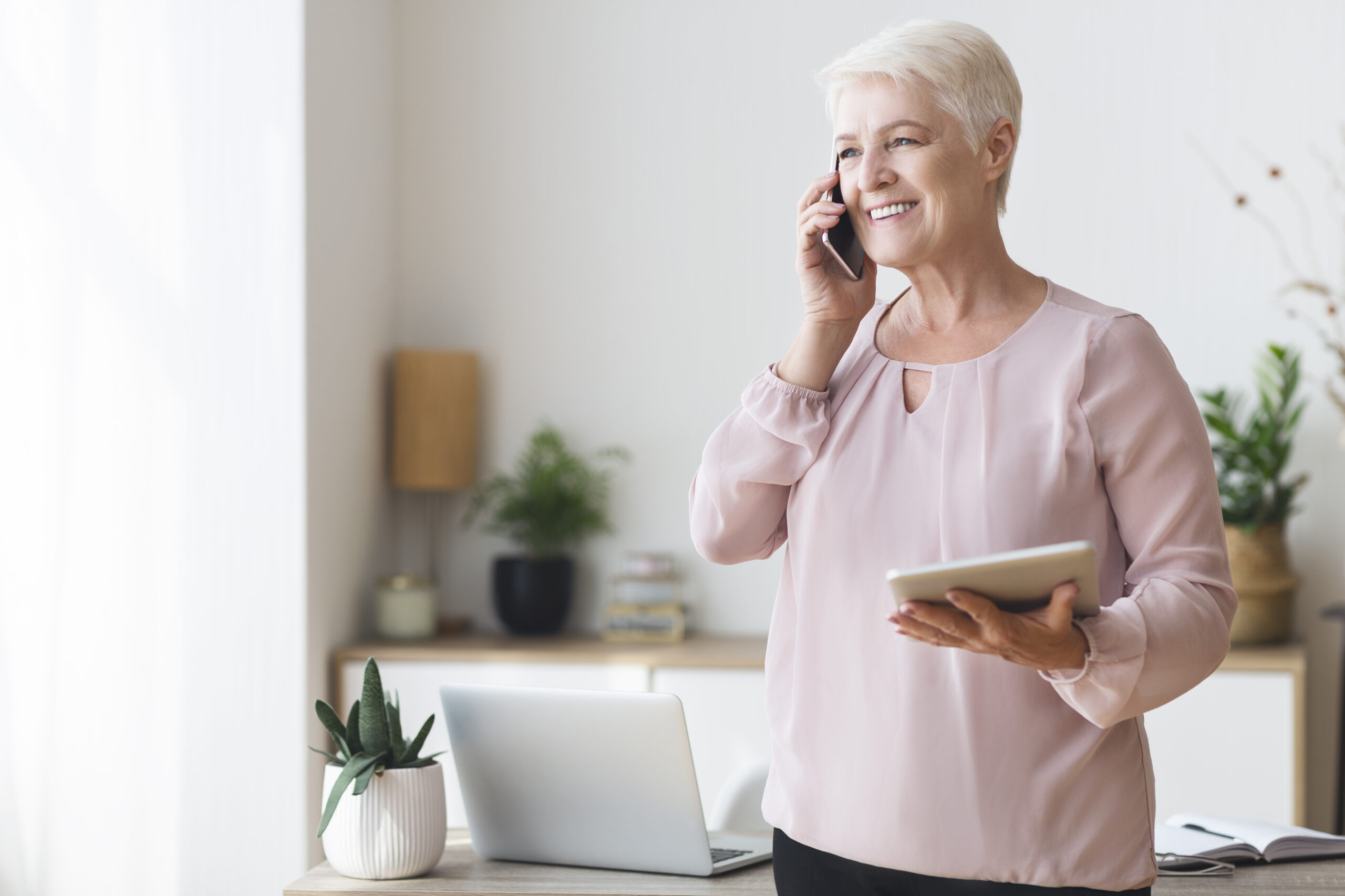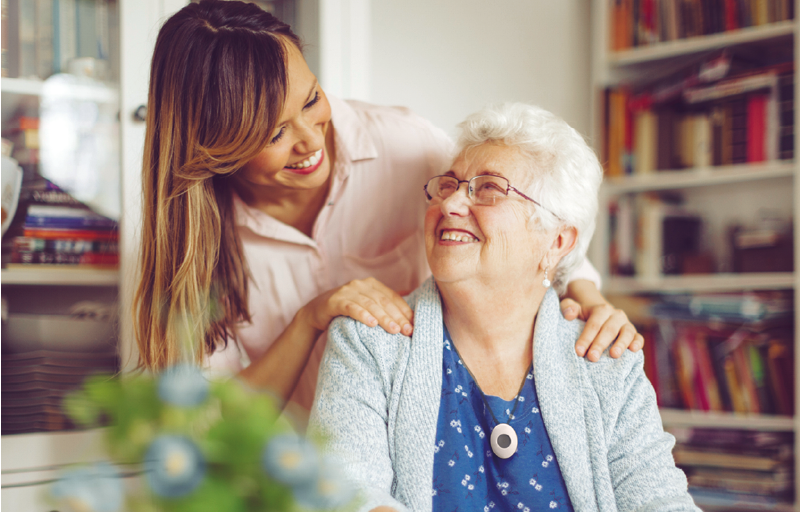What is a personal alarm you ask? Personal alarms are becoming a common method for enjoying greater peace of mind associated with independent living.
Now that more people are reaching retirement age, the care sector is under greater pressure to provide elderly care services. This means fewer people – both old and young – are getting the planned treatments they need, and healthcare professionals are having to look for new ways to streamline services.
Telecare services offer remote care for elderly and less physically able people. They minimise pressure on core services and make it easier for older people to live in their own homes. Personal alarms are one of the most popular types of telecare systems, and during the pandemic they played a key role in keeping vulnerable people safe.
If you’re interested in a personal alarm for an elderly relative, keep reading. This article explains everything you need to know about pendant alarms, including how they work and the different types on offer, as well as the monitoring service that accompanies the wearable device.
What is a personal alarm, and how do they work?
Personal alarms are known by lots of different names – from pendant alarms to elderly care systems and fall detection devices. They offer a fast and effective way for people who live alone to call for help and can significantly reduce the time it takes for someone to receive emergency care. The NHS recognises personal alarms and monitoring systems as a way to maintain safe independent living.
Personal alarms usually feature two separate devices: a base unit and pendant alarm. The base unit features a small multi-network SIM that sends and receives data from your telecare provider, and the pendant contains a radio transmitter that lets the base unit know when the panic button has been activated. Together, the two devices allow the wearer to call for help from anywhere in their home or garden.
People use personal alarms for lots of different reasons. Some use them because they are at risk of a fall or medical emergency, while others simply enjoy the security that comes with knowing help is nearby. Whatever your telecare needs, there’s something for everyone at SECOM CareTech. Our top-of-the-range devices are monitored by a fully accredited team of trained security professionals so you can rest assured your loved one’s homecare independent living needs are always met.
Pendant alarms
Pendant alarms are designed to be worn around your neck and are a good option for those who might misplace their alarm. They are often mistaken for pieces of jewellery, particularly if they are as highly stylised as ours, and can be worn under your clothes for added discretion. CareTech by SECOM’s pendant alarms for the elderly are waterproof, so there’s no need to take them off when bathing.
Care Hub
Our Care Hub package includes the Pearl, a small pendant alarm full of great features. The two-way radio transmitter that sits at the heart of the elderly personal alarm communicates directly with your base unit, keeping you in constant contact with a member of our monitoring team.
The pendant can be worn in both hot and cold water, perfect for keeping you safe while you bathe, and its 300-metre signal range is more than enough for most domestic settings.
Care Hub is a personal alarm linked to a relative’s mobile phone. If a user presses the SOS button, the system sends a message to the SECOM Care app. Loved ones can then use the app to let us know if they are responding or need us to step in. If your emergency contacts do not answer or are unavailable, a member of our monitoring team will respond immediately.
They will know who you are, where you are calling from and any medical details you have shared with us. They will assess the situation and coordinate with the emergency services to make sure you receive the help you need. This is why a pendant alarm offers great peace of mind.
Fall detectors
Fall detection devices use sensors and algorithms to monitor changes in direction and speed to figure out if you’ve suffered a fall. If your device is activated, the pendant sends an SOS signal to your monitoring centre. Your telecare provider can then work with your contacts and the emergency services to make sure you are okay.
Why use a fall detector?
Fall detectors are designed to limit ‘long lies’ and make sure you receive medical attention as quickly as possible in the event of a fall. Most users wear them because they suffer from one of the following conditions:
● Limited mobility
● Frailty
● Cognitive difficulties
● Epilepsy
● Diabetes
● Parkinson’s disease
As well as being distressing, a long lie can have significant health implications, including delaying medical treatment and exacerbating other conditions. One of the biggest issues associated with a risk of falling is the individual’s loss of confidence. An elderly fall alarm can help reduce this anxiety.
Care Hub Plus
Our Care Hub Plus package is a dual personal alarm system. It includes the Care Hub, a base unit that connects directly to our monitoring centre, and the Pearl Advanced, a pendant alarm with fall detection technology.
These two fall detection devices work together to call for help in the event of a fall, and can be used by the wearer to manually raise an alarm, either by pressing the SOS button on the pendant or sending an alert from the base unit.
If the Pearl Advanced detects a fall, it sends a distress signal to the base unit and starts to beep. This gives the user ten seconds to deactivate the alarm using the pendant’s ‘shake to cancel’ feature. If the alarm isn’t cancelled, the base hub sends an SOS signal to our monitoring centre and your emergency contacts.
GPS alarms
Traditional elderly care alarms have been around since the early 1970s. There have been several advances since then, including updates in fall detection and multi-network communication. But one of the biggest changes is the introduction of GPS personal alarms for the elderly.
GPS alarms can be used anywhere and support two-way communication. They allow your telecare provider to establish your exact location so no matter where you are – whether in the garden or walking to the shops – you are covered every step of the way. Knowing you’re able to speak to the monitoring team during an emergency also promotes independent living.
Care Go
The Care Go pendant is a personal alarm that can be used at home, in the garden or out and about. It features built-in location tracking and comes with its own wireless charging station.
Never be without the protection of a safe personal alarm, as the Care Go is water resistant and can be worn as a pendant or attached to your keys. The pendant lasts for up to a month on a single charge, and the unique light ring encasement glows whenever the battery is low.
To call for help, wearers need only press and hold the panic button on the personal alarm device. We will then speak to you via the device’s built-in speakerphone to assess the situation and make the appropriate arrangements regarding your care.
Take a look at the full selection of devices from SECOM Caretech and discover what is the best personal alarm for your elderly relative.
